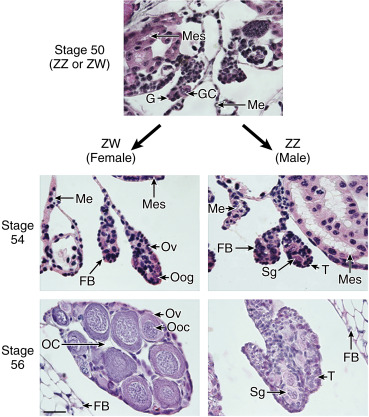
### The Swift Advancement of Sex Determination in African Clawed Frogs: An Innovative Discovery
An innovative study by researchers from McMaster University has uncovered a remarkable degree of diversity in the sex-determining chromosomes of African clawed frogs (*Xenopus* species). Featured in **Molecular Biology and Evolution**, the research highlights eight different sex chromosomes present among only 11 frog species, representing a notable shift from the previously accepted three. This finding challenges long-standing beliefs regarding the stability of sex chromosomes and evolutionary mechanisms in amphibians.
—
### Pushing the Limits of Evolutionary Biology
For many years, the African clawed frog has been a commonly researched model organism in biological studies. These frogs, inhabiting the slow-moving waters of sub-Saharan Africa, have been crucial in unraveling various biological processes due to their external development and evolutionary parallels to humans. With their flattened physique, vocal capabilities, and distinctive feeding methods using clawed hind feet, they have been essential for laboratory research. Until this point, scientists had been confident in their understanding of the genetics associated with sex determination in African clawed frogs.
Previously, researchers documented three sex chromosomes in these amphibians, presuming this encompassed the full picture. However, the extensive new research revealed an evolutionary occurrence that is much more intricate than anticipated. “In these frogs, we’ve found incredible variation even among closely related species, allowing us to examine how critical aspects like sex determination evolve swiftly,” states Ben Evans, the lead author of the study.
This finding distinguishes African clawed frogs from the majority of vertebrates, such as mammals and birds, whose sex chromosomes generally remain stable across species. For instance, humans exhibit a consistent XY sex determination, while birds operate under the ZW system. The pronounced variability in sex chromosomes among African clawed frogs emphasizes the adaptability of their genomes and offers a vital perspective on how evolutionary forces influence essential biological traits.
—
### A Challenge to Established Theories
Among the study’s most unexpected revelations is the positioning of sex-determining genes. Traditionally, researchers believed that these genes were more likely to emerge in genomic areas with low recombination rates. The reasoning was that such regions tend to safeguard crucial genetic information with little disturbance over generations. Contrary to this, the findings indicated that sex-determining genes in African clawed frogs predominantly exist in regions with high recombination rates.
This surprising outcome introduces new inquiries regarding the factors driving the rapid evolution of sex chromosomes. High-recombination zones may expose genes to intensified evolutionary pressures, potentially hastening adaptation. Nonetheless, this dynamic might also amplify the chances of genetic alterations over time, leading to the diversity noted among these frog species.
The consequences of this discovery are significant, as they contest the assumption that stability in sex-determining chromosomes is a universal trait among vertebrates. “If you conducted these same tests within some even older groups such as most mammals or all birds, you would find that their sex chromosomes are all the same,” Evans remarked. The distinct genomic traits of African clawed frogs could enhance scientists’ understanding of how complex biological systems adapt and evolve.
—
### The Significance of Investigating *Xenopus*
The relevance of African clawed frogs as a model organism transcends their intriguing genetic systems. Their external development renders them a valuable species for examining functional biology, embryonic development, and evolutionary adaptations. Additionally, their genetic structure provides insights applicable to other vertebrates, including humans.
Ben Evans has committed over two decades to exploring these fascinating amphibians. In a previous landmark achievement, his team identified six new species of *Xenopus* and reclassified another, laying the groundwork for breakthroughs such as this one. This latest research underscores how even well-studied organisms can astonish us with fresh evolutionary insights when examined more thoroughly.
—
### Glossary of Key Terms
– **Sex Chromosomes:** Specialized chromosomes that determine an organism’s biological sex. Examples include the XY system found in humans and the ZW system seen in birds.
– **Recombination:** A process in which genetic material is exchanged between paired chromosomes, resulting in new trait combinations.
– **Model Organism:** A species extensively utilized in research to investigate biological phenomena likely applicable to other species.
—
### A Paradigm Shift in Understanding Evolution
The revelation of eight distinct sex chromosomes among African clawed frogs illustrates how evolutionary processes can vary significantly, even within closely related species. It also emphasizes the limitations of presuming stability in genetic systems throughout all vertebrates. This groundbreaking finding highlights the necessity of studying biodiversity to unearth unanticipated complexities in nature.
Experiments involving the African clawed frog are expected to continue providing critical data, shedding light on how organisms adjust to shifting environments. For the time being, this study encourages researchers to reevaluate traditional theories concerning the locations and mechanisms of genetic evolution. It serves as a vivid reminder that in biology, the more closely you observe, the more surprises you may discover.
Interested in more stories like this? **Subscribe to the [ScienceBlog Newsletter](https://scienceblog